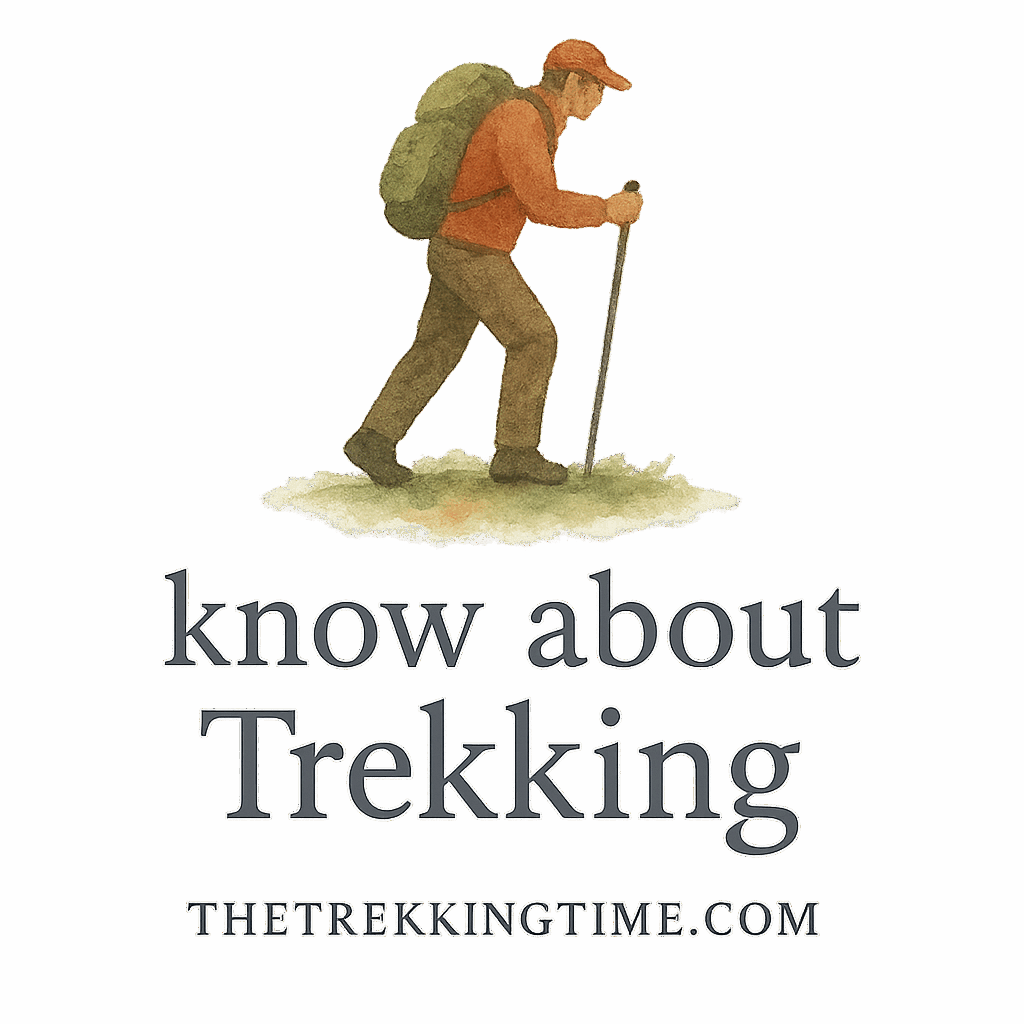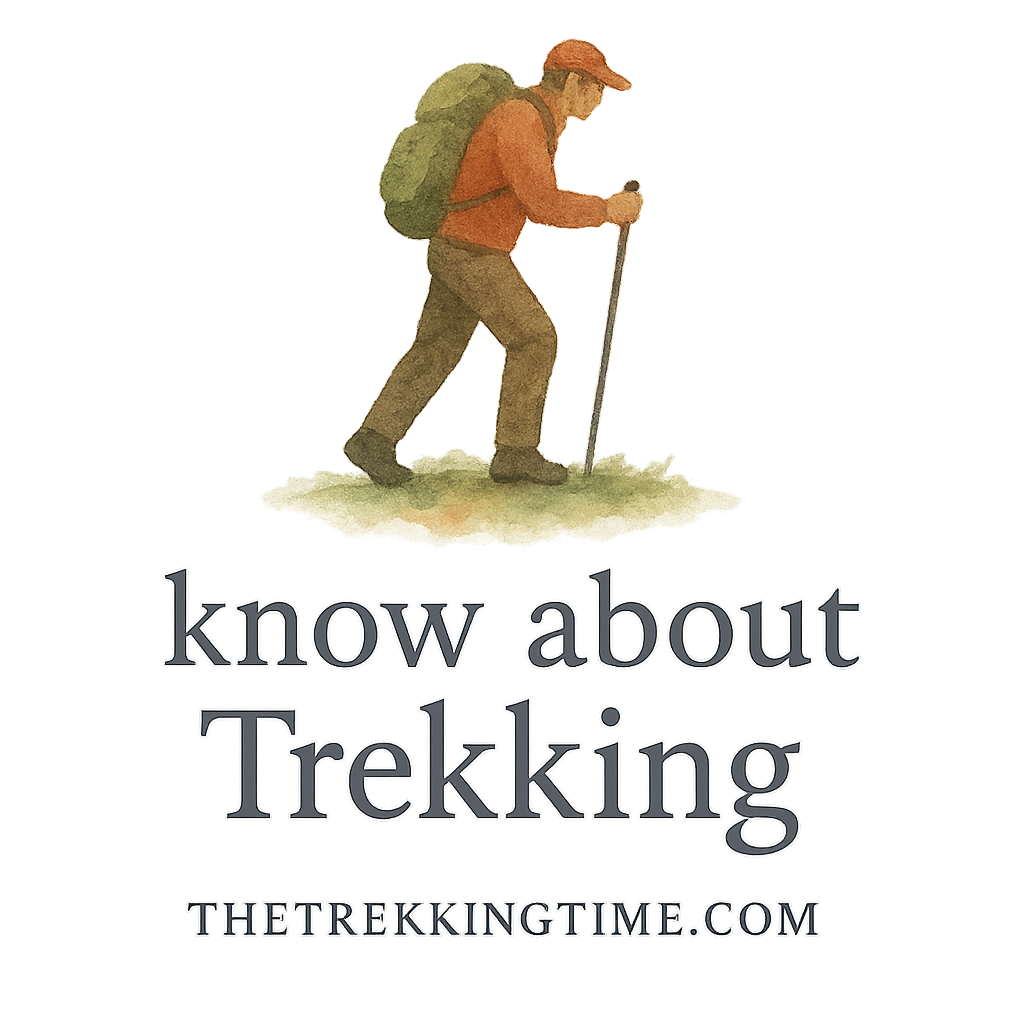Introduction
Ever feel like the weight of the world is pressing down on you? Yeah, we all do. That’s where trekking steps in — not just as a physical workout, but as a complete mental escape. Trekking through nature offers a unique cocktail of peace, challenge, and clarity that can uplift your mental state like nothing else.
In this article, we’ll explore 8 powerful reasons why trekking is good for your mental health, along with how you can start your own journey. We’ll also sprinkle in helpful resources like trekking basics and safety tips, ensuring you hit the trail fully prepared and inspired.
1. Trekking Reduces Stress Naturally
Disconnecting from Daily Chaos
Let’s be honest — our minds are overloaded. From emails and deadlines to social media pings, it’s hard to just breathe. Trekking gives you that break. When you’re out on the trail, your phone signal weakens, and so does your stress.
Nature’s Calming Effect
Numerous studies show that being in green environments helps lower cortisol (your stress hormone). Whether it’s the chirping birds or the rustling leaves, nature soothes your nervous system, helping you relax. It’s no surprise many trekkers report feeling a calm they’ve never experienced elsewhere.
Related: Trekking and mental wellness
2. It Boosts Mood and Releases Endorphins
The Science Behind It
Every step you take while trekking pumps up your blood flow, which boosts oxygen to the brain. This helps release endorphins, those feel-good chemicals that naturally lift your spirits.
A Natural Antidepressant
Instead of popping pills, how about hiking hills? Trekking is a natural way to fight anxiety and depression. Regular exposure to nature coupled with physical activity works like a holistic therapy for your mind.
Check out: Health benefits of trekking
3. Trekking Helps You Sleep Better
Deep Sleep and Trekking Go Hand in Hand
Ever noticed how you sleep like a baby after a long hike? Trekking regulates your body’s internal clock, improves melatonin production, and tires you out just enough to fall asleep faster and deeper. It’s the perfect remedy for insomnia sufferers or anyone struggling with sleep quality.
Learn more at Trekking Fitness Prep

4. Improves Focus and Clarity
Mindfulness on the Trail
You can’t worry about tomorrow’s meeting while navigating rocky terrain. Trekking forces you into the present moment — step by step, breath by breath. This mindfulness improves mental clarity and focus.
Sharper Thinking Through Movement
The rhythmic motion of walking stimulates your brain and enhances cognitive function. You think clearer, problem-solve faster, and get those creative juices flowing.
Find more insight on benefits of trekking
5. Builds Mental Resilience
Overcoming Physical Challenges
Ever climbed a steep slope and felt like quitting, but pushed through anyway? That’s mental strength in action. Trekking constantly throws small obstacles your way — tough inclines, long trails, unpredictable weather — and every time you conquer one, you become more resilient.
Learning to Embrace Discomfort
Being cold, tired, or sore isn’t pleasant, but enduring these discomforts makes you mentally tougher and more adaptable in everyday life.
Explore challenging routes and difficult trekking paths for building grit.
6. Encourages Social Connection
Trekking as a Shared Experience
Whether you trek with friends or join a group, shared experiences build strong bonds. Those campfire chats and shared meals on the trail foster deep conversations and lasting friendships.
The Power of Group Motivation
Being around like-minded adventurers boosts your morale and encourages you to keep going. Group trekking is especially great for those battling isolation or loneliness.
Check Hiker Community Insights
7. Promotes a Positive Routine and Healthy Habits
Building Consistency in Life
Trekking trains your brain to form positive routines. You start planning, preparing, waking up early, and staying hydrated. These habits spill over into daily life, improving overall performance and well-being.
Trekking Fosters Responsibility
From carrying your own gear to following trail rules, trekking teaches discipline, self-care, and responsibility — all key for a balanced mind.
Stay organized with our Trekking Gear & Packing Guide
8. Enhances Self-Esteem and Confidence
The Psychological Reward of Achievement
Reaching that summit isn’t just a physical win — it’s a mental one. Completing a trail builds self-esteem, proving that you’re stronger than your fears and doubts.
Each trail conquered is like a personal trophy for your mind. That confidence? You carry it off the trail and into life.
Want more on personal growth through trekking? Check Mental Resilience Tags
How to Start Your Trekking Journey
Choose the Right Route and Gear
If you’re new to trekking, don’t overdo it. Start with beginner-friendly trails listed in our Trekking Destinations Guide. Pack smart — essential gear makes the difference between an amazing hike and a miserable one. Use the Gear & Packing section to get prepped.
Prepare Physically and Mentally
Condition your body with regular walks or jogs. Check out our tips on fitness and trekking prep to stay in peak shape. Mentally, remind yourself that discomfort is part of the reward.
Conclusion
Trekking isn’t just about walking in the woods. It’s a powerful tool for nurturing your mental health. From reducing stress and improving mood to building resilience and boosting self-esteem, the benefits are undeniable. So, if you’ve been feeling drained, stuck, or overwhelmed — it might be time to hit the trail.
Let trekking be your therapy, your gym, your meditation, and your adventure — all rolled into one. For everything you need to begin, visit The Trekking Time, your one-stop resource for trekking wisdom.
FAQs
1. Is trekking better than therapy for mental health?
Trekking can complement therapy by offering natural stress relief, physical activity, and time in nature, which together support emotional well-being.
2. How often should I trek for mental health benefits?
Even a weekend trek once or twice a month can yield noticeable mental health improvements.
3. Can beginners experience mental health benefits from trekking?
Absolutely. Even short, easy hikes provide calmness, clarity, and a mood lift — ideal for beginners.
4. Are there any risks associated with trekking for mental health?
Only if you’re unprepared. Follow trekking safety tips and plan smart to ensure a safe, stress-free journey.
5. What gear do I need for a mental wellness trek?
Comfortable footwear, layered clothing, water, snacks, and a basic first-aid kit. See our gear checklist for details.
6. What’s the best trekking location for mental peace?
Remote, scenic areas like the Himalayas or serene forests offer the best environments for mental rejuvenation.
7. Does trekking improve mental health long-term?
Yes, especially when practiced regularly. It builds resilience, fosters positivity, and encourages healthy routines that benefit you over time.


